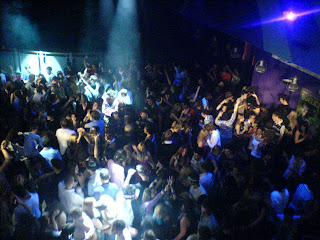Education Committee – 30/11/06VP Education Report This report is intended to give a brief overview of the things I have been up to recently, and also some of what my role entails. There are three sections, which I see as the key parts of the VP Education Role –
Representation, Campaigning & Support.
Representing StudentsThe majority of my time is taken up in University meetings, I have listed most of them below to give you an idea of the range and quantity. Its great having the opportunity to input in to these meetings, ranging from very operation ones such at Timetabling through to strategic meetings such as the University Board for Teaching & Learning and up to the highest level meetings of Senate & Council. During these meetings I provide the student perspective, but also sitting on so many I also get a good insight of the structure and processes in the University, the student voice is vital, and can really steer change in the University. Course & Faculty Reps are also a major part of this representation, and considerable amounts of work has been done training and supporting them.
>Some of my Meetings & Committees
Careers Advisory Board, Centre for Excellence for Careers Management, Post Graduate, Information Security & Strategy, Welfare Support & Guidance, University Board for Teaching and Learning, University Board for Research, Teaching & Learning Facilities(T &L) , IT in T & L, Web Steering Group, Programme Management, Blackboard working groups, PDP, Teaching & Learning Strategy Review, University Council, University Senate, Bookshop Advisory Board, Student Union Liaison Committee, Group on Student Recruitment, Centre for Excellence in Undergraduate Research Skills, Examinations & Assessment, Failures Committee Review, CSV, Curators of the Library.....
Elected Chair of University Staff/Student Forum
>Conferences & Training I have attended
National Student Learner Programme (NSLP)
NUS Education Officer Training
Research Based learning in Higher Education.
Research Assesment Exersise (RAE) student consultation exercise
STADIA – Student Activites & Development (Course Reps)
Campaigning for StudentsIn terms of campaigning, this term has seen a mass of activity in the education zone. The National Demo was the first campaign, in which students joined a rally in London saying No to soaring levels of debt, No to any attempt to lift the cap, No to the marketisation of education & yes to a free education for all. The work around this really raised the issue and has students talking about it. This is part of a national long term campaign which is working towards keeping the cap in 2010. More work on this will carry on through the year.
The Physics Closure has been a real challenge, and also been the lowest point of my time at RUSU. The recommendation of the closure arrived late on Friday on the eve of Freshers Week and just before the biggest open day of the year (which I had worked hard on with the University) this was not an easy start to the year. The campaign was very strong, with good arguments and great support from students, staff and also raised issues at a national level. We worked closely with the Lectures Union (UCU) who all said how strong our campaign was. Unfortunately University Senate & Council voted for the closure, purely on financial reasons. Our focus now is on the future education of the students in the department, and I will be working closely with the University on this.
Supporting StudentsThere has been increased pressure on resources with a key member of staff leaving, the role is being reviewed and the position to be filled after Christmas, this support for Course Reps etc will continue through VP Education until then.
We are also working on a bid to the University for an Education Advisor. This role is to support the VP Education & Advice team in terms of academic appeals & complaints. This has taken a considerable amount of my time up, and this post is now top of the synergies agenda with the University. It has been approved at all levels, but were the money comes from is now up for consultation. This post will also support the work needed in regards to the QAA next year.
Course Rep Training – over 80 Course Reps trained, brings current number to 350+. Training sessions had excellent feedback, and has improved year on year.
Work on the Faculty Representation implementation group has continued, and a series of papers have now been completed for Students, Faculty Staff and Department/School staff. On going work includes the mapping of University Committees/meetings there function and membership.
I have been involved in the co-ordination and delivery of MASIV and the RUReady training sessions.
I have also helped set up the Mature Students Society, this is a real step forward and will help us to represent their views and issues to a higher standard.
Plans for the Future – notes on some of the ongoing work I will be doing.
• Continued work on the Demo
• Plagiarism Awareness – work starts next week.
• Improving Assessment & Feedback
• Post Grad society/representation group
• Further work on embedding the Course Rep system
• Course Rep training
• Lobbying for Educational Advisor
• Improved teaching & learning facilities at Bulmershe
• Working with the Library in relation to opening hours and the refurbishment of the ground floor.
• Review of Teaching & Learning strategy
• Pilots for Blackboard
• PDP
• Representing students at University Committees and meetings.
• The start of the QAA
• SE Weighting Campaign
• Finance Campaign/ Exam Stress






 The Teaching and Learning Strategy is a document which outlines the direction of teaching and learning for the next five to six years making it extremely important for current and prospective students.
The Teaching and Learning Strategy is a document which outlines the direction of teaching and learning for the next five to six years making it extremely important for current and prospective students.






